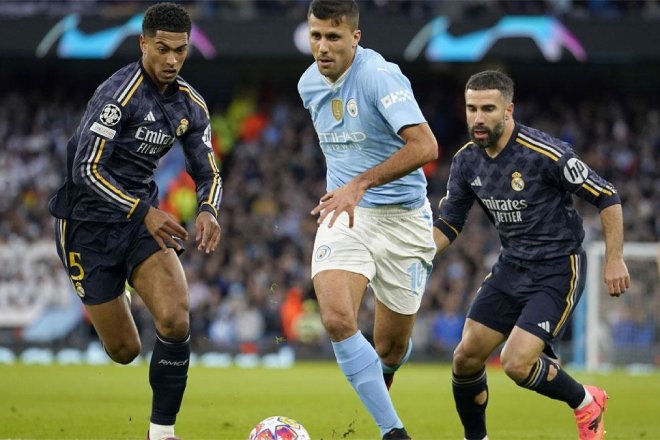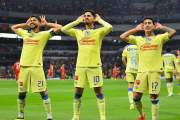One of the legacies of the 2014 World Cup has been to leave behind a trail of tactical tweaks by the master tacticians on the sidelines. Alejandro Sabella has done so as has Joachim Löw. After much chipping and chopping, they have finally settled down, albeit not completely, with two different game plans. And aside from slight alterations, there is no reason why the managers will alter their teams greatly.
Let us take a look at the probable line ups first:
Argentina (4-3-3): Sergio Romero; Pablo Zabaleta, Martin Demichelis, Ezequiel Garay, Marcos Rojo; Lucas Biglia, Javier Mascherano, Enzo Perez; Gonzalo Higuain, Lionel Messi, Ezequiel Lavezzi
Germany (4-2-3-1): Manuel Neuer; Philipp Lahm, Jerome Boateng, Mats Hummels, Benedikt Höwedes; Bastian Schweinsteiger, Sami Khedira; Thomas Müller, Toni Kroos, Mesut Ozil; Miroslav Klose
Obviously, the first two duels which immediately catch the eye are Lionel Messi vs Bastian Schweinsteiger and Javier Mascherano vs Toni Kroos. In the 2010 World Cup, Schweinsteiger was very effective in cutting down the supply to Messi, forcing the playmaker to drop as deep as possible to pick up the ball.
Against a vulnerable back four, Germany thus had more space to attack. This Argentina side are defensively solid though and Schweinsteiger might thus be prevented from moving forward as much as he did in that match as the instigator of counterattacks.
Much of Germany's play in this World Cup has revolved around the highly confident Toni Kroos, who just does not seem to get much wrong. However, Brazil left him alone to do his job and they are not the first team to do so. Mascherano's job will be to shut down the German supplier of passes. He is also quite the dead ball specialist, having supplied the multitude of corners and free kicks from which Germany have benefitted in this tournament.
Höwedes and Özil will have to nullify Higuain and Rojo. Higuain has grown as the tournament has aged. Germany's weakness has been the left side of defense as Höwedes is a center back. He can be exploited. Löw will perhaps not change much; he might ask either Khedira or Schweinsteiger to step in and shield that side from attacks from time to time, allowing Kroos to step back and fill in the hole left by either of his German counterparts.
Another very interesting battle will have take place between Müller and Rojo. That battle might not actually be directly between the two. Müller seems to turn up in all pockets of space over the pitch. He might instead be found between former club mate Demichelis and Garay. He might instead help open space for Kroos. This is where Müller has the advantage on perhaps all the players on the pitch.
In 2010, when Argentina and Germany met, Müller did this job greatly. In fact, he is like the office employee without a job description because he is useful in more than just one department. Argentina has shown that they are very hard to break open. Müller will have to find tight pockets of space between the Argentine's 4-3-3 lines.
Messi will be tasked with a slightly different but not dissimilar role for Argentina; his job might be easier though because Germany have shown that they can be defensively caught out. Argentina's setup, while attacking on paper, ensures that the team does not concede goals; this limits their attacking options, dependent on Messi for moments of magic. The Germans mix up defensive and attacking football. They attack in a measured manner and counterattack ruthlessly when given the chance.
With a tight game thus expected, the match might come down to one chance. Germany should definitely get one; Kroos missed the one they had against Spain in the previous World Cup in the semifinals. Müller however made it count against a Chelsea side which parked the bus in the UEFA Champions League Final in 2012 although Bayern went on to lose the final. Also, Bayern had wasted plenty of chances already; but the point is that Müller knows how to make a football cross the line better than most players do.
As far as his individual record is concerned, he has never lost to Messi in a competitive fixture. When Bayern meet Barcelona in the 2013 UEFA Champions League semifinals, they won 7-0 on aggregate with Müller playing a starring role. It must be said that Messi was not fully fit and did not play in the second encounter.
Germany's offside line, despite slightly reckless, allows the likes of Kroos to push up further on the pitch and cause errors, leaving little space behind. Müller will be aware of this because he is usually the first outlet along with the onrushing Lahm.
Coach Joachim Löw will be clearly aware of the fact that Messi can catch the offside line off guard as can Higuain. However, Löw will have to protect the identity of his team. Against Spain in the 2010 World Cup Final and against Italy in the 2012 Euro semifinal, Löw played to the opposition's strengths; he tried to neutralize them. His team had their own strengths and he did not set the team out to play to them. Now, he must change very little ahead of the final. He will also hope his star man, Müller is on top form.
Müller will surely have a second Golden Boot in his sides. Both Müller and Messi will have their eye on the Golden Ball as well. If Messi goes on to win, he will emulate the great Diego Maradona.
Can Müller play the starring role again in a match which promises to be tight and highly tactical? Or will Messi light up the Maracana using his broad set of skills?
























